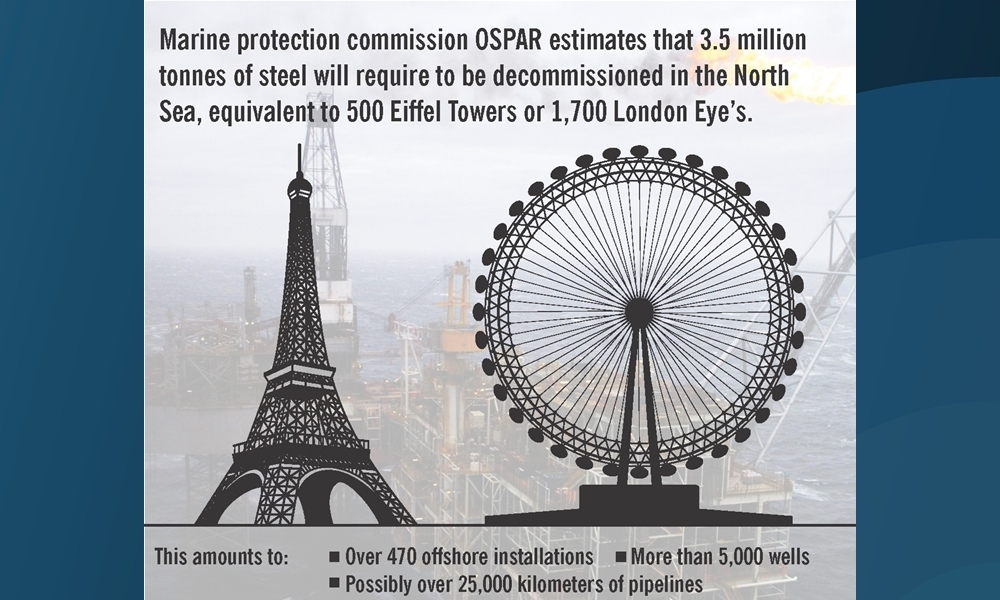Oil and gas industry leaders were urged to work together yesterday to avoid the £40 billion decommissioning of North Sea assets becoming a “race to be second”.
Schlumberger UK’s chairman and vice-president of industry affairs Gordon Ballard told 300 delegates to the Decom North Sea conference at Fife’s Fairmont St Andrews hotel that the “enormous challenge” of decommissioning could not be achieved without significant industry collaboration.
But he said the UK had the opportunity to become a global centre of excellence for decommisioning if it approached the challenge posed by removing more than 3.5 million tonnes of steel and concrete from ageing North Sea facilities in the correct manner.
Mr Ballard said driving down costs was key to long-term success, but no one company could be expected to innovate decommissioning solutions in isolation.
“While decommissioning activities represent a significant business opportunity for UK contracting and consulting companies, they can also be viewed as a major liability to the owners of the assets and the UK Government,” Mr Ballard said in his keynote address.
“Therefore we need a significant drive to reduce costs by learning from experience, sharing of knowledge and innovative approaches. Through engagements like this we can begin to intelligently and pragmatically address the decommissioning challenges ahead.
“Indeed, estimates by the Royal Academy of Engineering suggest that the lessons learned from decommissioning any one installation can potentially reduce costs by 10%-15% for successive facilities.
“Often companies that take the lead on innovation find that they incur all the costs of innovation while those that follow gain all the advantages.
“Innovation is costly and there can often be a ‘race to be second’ mentality throughout the industry. Together as an industry we cannot afford to take this approach for decommissioning.
“One of the many achievements that we should be proud of in our sector is a culture of sharing accumulated knowledge.
“It is crucial this is encouraged and developed for the decommissioning phase. Mistakes and failures to plan and execute in an optimal way will be costly for the companies involved, as well as impacting our wider industry reputation,” Mr Ballard added.
He said skills was a key area that must be addressed he suggested recruiting from other industries, building apprentice numbers and looking at ex-military personnel as potential recruits and said there was knowledge to be had from the likes of the nuclear decommissioning sector that could help shape strategy going forward.
However, he said decommissioning presented a major opportunity to build a new powerhouse industry with a global reach.
“The decommissioning of the UK Continental Shelf is a major engineering and commercial challenge,” Mr Ballard continued.
“It will be expensive, take many years and must be carried out with great care to protect the environment.
“It also represents a significant opportunity for the UK industry. The North Sea is not the only place that will be decommissioning such infrastructure, and lessons that we learn should be transferred abroad and business constructed on this knowledge.”
Meanwhile, industry body Decom North Sea added four new faces to its board at its annual general meeting in St Andrews this week.
Torleif Gram, Tim Eley, Paul Caruana and Stuart Wordsworth were all elected new board members at the meeting, while existing directors Ian Whitehead and Murdo MacIver were also kept on.
